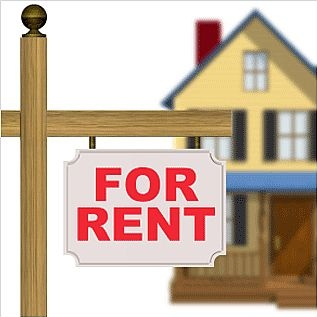 Buying your own home is the American Dream, but many of us rent our homes. It could be that one is not ready to own a home and everything that comes with it. Or it could be that it is out of the budget for now. Whatever the reason, many Americans decide to rent a home, condo, or apartment for their living quarters. When you rent, there are a lot of things you should know, before you sign on the dotted line. These items are very important, and may make you think twice before putting your signature on that lease.
Buying your own home is the American Dream, but many of us rent our homes. It could be that one is not ready to own a home and everything that comes with it. Or it could be that it is out of the budget for now. Whatever the reason, many Americans decide to rent a home, condo, or apartment for their living quarters. When you rent, there are a lot of things you should know, before you sign on the dotted line. These items are very important, and may make you think twice before putting your signature on that lease.
Here are 7 items you should look out for when renting:
You cannot break a lease
Some people think that a lease is just a formality, but it is a legal and binding agreement and is enforceable by the courts. If you are planning to move before the end of the leasing term, there may be an early move out charge that you are required to pay (that is usually up to three times the amount of your monthly rent). In most instances, the only way you are allowed to legally break a lease is: deployment into the armed forces, being transferred more than 75 miles away from your home (a letter from your employer detailing this move is required), or death of you or other lessee on the lease with you. Anything else is not considered a legal reason to break a lease, including termination from a job.
Know what utilities you are responsible for
Most leases state what utilities you are responsible to pay for. If not, it should be spelled out by your landlord. Have the utilities changed over in your name before your move-in date (you can have them turned on in your name on the day of your move), and make sure to record the transaction number of those orders to give to your landlord. If you don’t have your utilities turned on in your name, your landlord could suspend service and you could be without water, electric, gas, etc.
Question before you sign
If you have questions about your lease or what’s in the lease, ask before you sign. As I mentioned earlier, a lease is a legal binding contract, so it is better to clarify the concerns you may have then to sign and think that they will work themselves out. Your landlord should also allow you to have an attorney preview the lease before you sign, at your cost of course. If there are any changes made to the contract that are different from the contract, spell out those differences and initial them since they have been added to the contract. Your landlord should also initial as well.
Know what can be changed in the interior/exterior of your home
Just because you rent doesn’t mean that you want a static or boring home. You may want to paint the walls or hang pictures or add your own screen door to your home. Whatever the case, you must check with your landlord first to see what changes are allowed and what aren’t (they should also be spelled out in your lease). Your landlord may allow you to paint the interior walls in your home as long as you return them back to the color they were when you moved. Your landlord may also not allow you to use nails or studs when hanging pictures. Make sure you understand what is allowed before you make changes. Doing so may cause you not to get your security deposit back.
Pet rent or pet exclusions
Some landlords or apartment communities allow pets, but only allow them under a certain size. They also may disapprove of certain pets or breeds (pit bulls being one of them). Your lease may also require you to pay an additional pet rent or pet fee if you have a pet. Know your lease and understand if pets are allowed as well as what types are allowed.
Association fees?
When you rent in a condo complex, association fees are common. Some landlords apply the association fee into the lease as one payment, but I have seen landlords who do not add on this fee, but state that you are required to pay it each month, quarter, or year. Association fees can be quite steep and could make the difference between you wanting to rent from that particular landlord or not, so make sure you understand which of you is responsible for this fee.
Maintenance hours
One perk of renting is that your landlord is responsible for the maintenance of the home (unless stated otherwise) since they are the owners of he dwelling. Know the maintenance availability, if there is emergency or on-call maintenance after hours. Know the number to the maintenance office and never try to do repairs on your own. Always notify your landlord of a problem or issue.
Renting can be a mutually convenience and beneficial experience, but you have to make sure you know the ins and outs of your lease, what is expected of you as a tenant, and what you are responsible for when you move in.
I hope you find this list of items beneficial. Happy renting!
As a former property manager, these are tips that I recommend you be aware of before renting. This is not a substitute for legal advice and there is no implied warranty in the above information given.
























 #birthdaybehavior
#birthdaybehavior
Leave a Reply